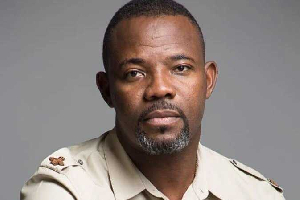Public accountability in the implementation of the multi-donor budget driven Ghana Poverty Reduction Strategy (GPRS) was the subject of debate by stakeholders at a Development Dialogue Series organized by the World Bank in Accra on Friday.
The interactive session that attracted members of the Executive, Legislature, Civil Society groups and Donor Partners brought into focus the general lack of public participation in the development of the strategy that spans a three-year period.
Most of the participants conceded that general lack of public knowledge about the GPRS was likely to undermine accountability needed to ensure the success of the comprehensive policy strategy by the government to promote an agenda for growth and prosperity for the citizenry.
The dialogue, the second in a series aimed at promoting a vibrant policy discourse, was on the theme: "The GPRS and Multi-Donor Budget Support (MDBS): Strengthening the Links of Accountability."
The Ministry of Finance of Economic Planning, the Centre for Policy Analysis (CEPA) and the Ghana Centre for Democratic Development (CDD-Ghana) co-sponsored the event and also provided think tanks for the discussions.
Mr Alban Bagbin, Minority Leader and Chairman of the Public Accounts Committee of Parliament, who spoke on "The Role Of Parliament in Strengthening the Links of Accountability," said the House was marginalized in all consultations that led to the production of the GPRS document.
"Access to the document was even a problem. Parliament had to cry foul and as at now I don't think Parliament has made any input."
Mr Bagbin said the haste by which the executive pressurized Parliament to approve policies was an indication that MPs were not supposed to understand issues at stake.
Dr Audrey Gadzekpo, Senior Lecturer at the School of Communication Studies, University of Ghana, Legon, said the low public perception about the GPRS was an indication that the media was not actively involved in the strategy formulation.
She said there was the need for journalists to be adequately informed about the strategy to facilitate public education and their watchdog role of enhancing accountability.
Dr Gadzekpo, however, cautioned journalists against reckless attacks on the personality of public officials and agencies that tend to undermine confidence building.
Dr. Emmanuel Akwetey of the Institute for Democratic Governance said the exclusion of the majority of people in policy decisions undermined accountability.
He said if this cycle of exclusion was not broken, the GPRS was not likely to achieve its aims and objectives.
Mr Godfrey Ewool, Consultant at the Ministry of Local Government and Rural Development, expressed the need to improve on the quality of personnel at the district assemblies to strengthen the local government system.
General News of Friday, 23 May 2003
Source: GNA
















